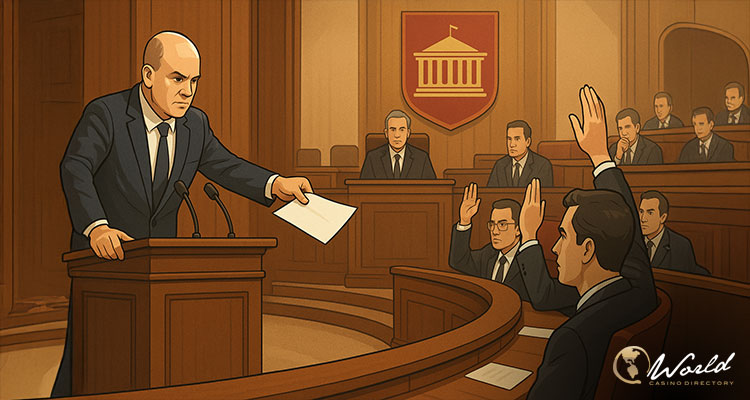Thailand’s ruling coalition is preparing to formally remove a contentious bill aimed at legalizing entertainment complexes with casinos from the parliamentary agenda this Wednesday, July 9. The decision, according to multiple government officials, comes not out of fear or pressure but from a desire to foster public understanding and recalibrate political strategy amid deepening unrest within the administration.
Chief government whip Wisut Chainaroon, also a Pheu Thai party-list MP, confirmed that the bill—officially titled the Entertainment Complex Bill—will be withdrawn during this week’s parliamentary session. “This is not about being afraid of anything,” Wisut clarified according to The Nation. “I’ve already explained to everyone that we must help the public understand the reasoning behind this move and allow the current momentum to subside before proceeding.”
He further dismissed suggestions that pulling the legislation reflected a loss of political standing, emphasizing that the decision was made after careful internal party discussions.
Political Upheaval Weakens Coalition’s Majority
The move to shelve the bill coincides with mounting internal political turmoil, including the recent withdrawal of the Bhumjaithai Party from the ruling bloc—a significant development that diminished the coalition’s parliamentary majority. Bhumjaithai had publicly opposed the bill and cited ongoing political controversies, including a leaked phone call involving Prime Minister Paetongtarn Shinawatra, as part of its rationale for exiting the coalition.
Prime Minister Paetongtarn was suspended on July 1 by the Constitutional Court following allegations of ethical misconduct related to her private conversation with former Cambodian leader Hun Sen, in which she criticized the Thai military’s handling of a border dispute. Interior Minister Phumtham Wechayachai has since stepped in as caretaker prime minister.
Without a stable majority, passing legislation—particularly one as divisive as the casino bill—has become significantly more challenging.
Government Emphasizes Need for Public Engagement and Cabinet Review
According to Deputy Finance Minister Julapun Amornvivat, the decision to withdraw the bill is also a strategic move to allow for deeper review by the newly forming cabinet. Julapun noted that while the government technically still holds enough parliamentary support to push the bill through, it has opted instead for a pause to better engage with the public and address widespread concerns, especially around issues like problem gambling and financial crime.
“There are more pressing agenda issues that need to be addressed such as the ongoing border dispute with Cambodia,” Julapun stated during a recent press forum, reiterating the importance of focusing on national stability. He added that while cabinet approval is usually needed to withdraw a bill, the process can be expedited if parliament raises no objections.
Withdrawing the bill entirely, rather than simply delaying it, was seen by officials as a stronger gesture to ease public and political tensions. A return to the legislative agenda remains a possibility, but no clear timeline has been provided.
Economic Implications and Investor Disappointment
The Entertainment Complex Bill had attracted substantial interest from global investors and major gaming companies, including Galaxy Entertainment Group, MGM Resorts, Wynn Resorts, and Las Vegas Sands. These operators viewed the proposal as a pathway to bring integrated resort-style developments to Thailand, potentially revitalizing its tourism sector, which contributes around 13% to the national GDP and employs roughly one in five Thais.
However, the government’s reversal has dampened investor sentiment, particularly among those who anticipated swift action on legalizing such complexes as a way to draw international visitors and stimulate local economies.
A Wait-and-See Approach Going Forward
Asked whether the bill might be reintroduced in the future, Wisut Chainaroon remarked that it was “too soon to say,” though he pointed to historical examples like the previously controversial Amnesty Bill, which eventually lost its divisive edge.
“Many have been saying for months that they want the bill withdrawn. So, on July 9, let’s see whether they will oppose the move. If you don’t obstruct it, the withdrawal will proceed smoothly,” he added. “Politicians should be consistent in word and deed. If you said you wanted it withdrawn, don’t block it when it happens. Just go back and watch the clips of what you said before.”
For now, the future of legalized casinos in Thailand remains uncertain, with political dynamics and public opinion shaping what comes next. The bill’s withdrawal marks not an end, but a pause in what is likely to be a protracted national conversation.



